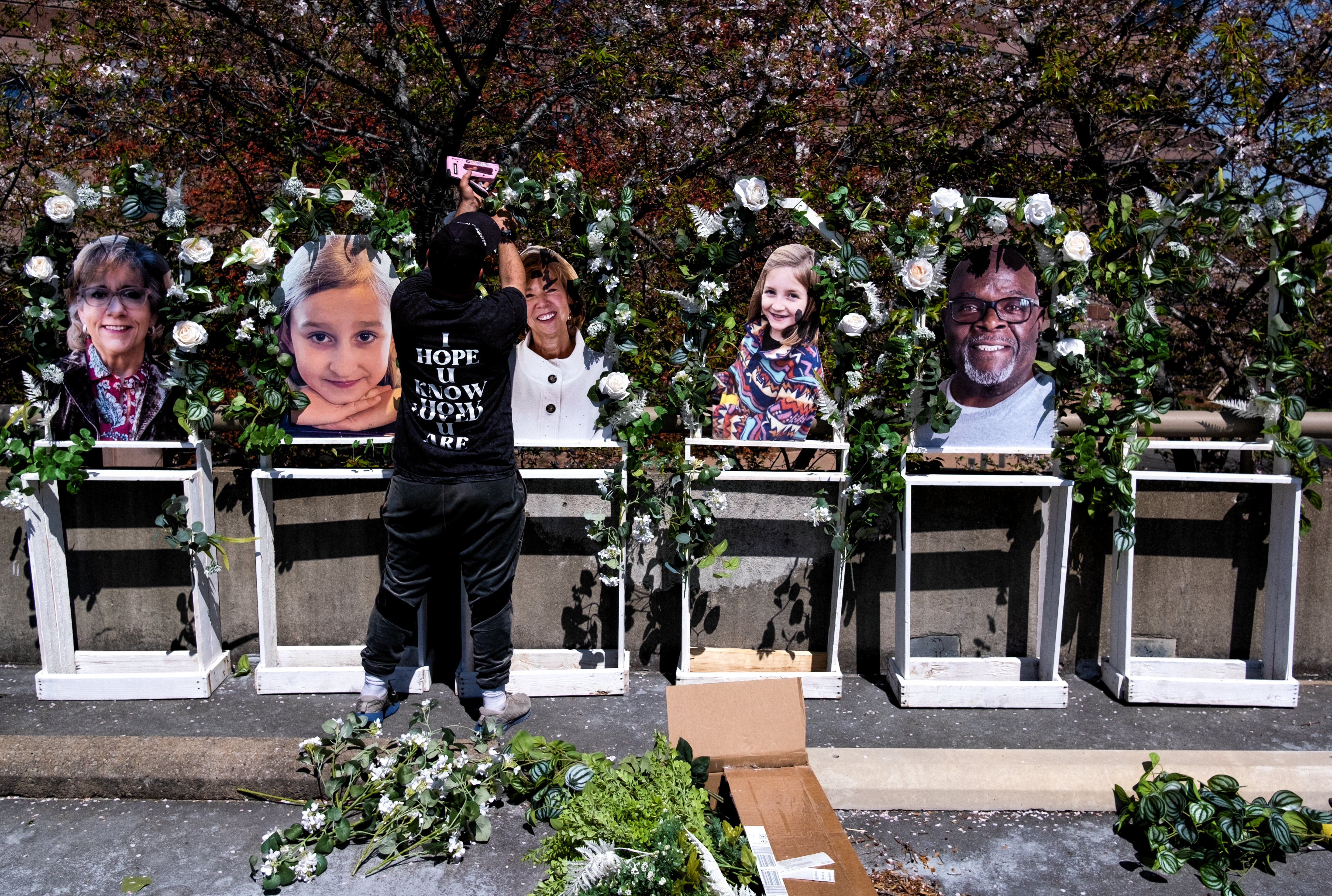‘This should never happen to children’: Nashville doctors reveal injuries of school shooting victims
The doctors said they felt helpess due to the “completely unsurvivable wounds” the children suffered
Your support helps us to tell the story
From reproductive rights to climate change to Big Tech, The Independent is on the ground when the story is developing. Whether it's investigating the financials of Elon Musk's pro-Trump PAC or producing our latest documentary, 'The A Word', which shines a light on the American women fighting for reproductive rights, we know how important it is to parse out the facts from the messaging.
At such a critical moment in US history, we need reporters on the ground. Your donation allows us to keep sending journalists to speak to both sides of the story.
The Independent is trusted by Americans across the entire political spectrum. And unlike many other quality news outlets, we choose not to lock Americans out of our reporting and analysis with paywalls. We believe quality journalism should be available to everyone, paid for by those who can afford it.
Your support makes all the difference.Doctors who treated the victims of a mass shooting at a Nashville religious school — which included three nine-year-old children — discussed the horrific situation they were faced with after the attack in a recent interview.
Dr Joseph Fusco of Monroe Carell Jr Children's Hospital and Dr Alex Jahangir of Vanderbilt's Centre for Trauma treated the three children killed in the attack, and spoke about their experiences with NPR.
"You're in a bit of shock when you get something like that.This should never happen to children," Dr Fusco told the outlet. "The wounds that are present on these children's bodies — I mean, not to be gruesome, but I think suffice to say that injuries from those weapons are essentially unsurvivable for children,"
Dr Jahangir said he can "tell right away" if someone has been shot by a handgun or by a high-powered assault rife.
He called the wounds caused by the latter "exponentially worse, obviously."
He said that despite all of his training, all of his colleagues’ training, and the medical technology available to him, the responding physicians felt "sheer helplessness" because the patients arrived with wounds that were "completely unsurvivable."
The doctor noted that young children are especially susceptible to the damage an assault rifle can cause as their vital organs are closer together, increasing the chance that a single wound could be fatal.
Firearms are the leading cause of death for US children, with thousands dying each year due to fatal wounds.
Dr Jahangir said apart from the helplessness, the staff — many with young children of their own — could not escape the mental toll of treating wounded, dying children.

"We're not immune to the emotions that happen. Everyone is still shaken up in the hospital just like we are in the community," Dr Jahangir said. "It hits home."
Dr Fusco recalled a staff meeting with approximately 20 doctors and nurses following the events of the 27 March shooting, saying many were silent, and others were visibly — and understandably — upset.
"Being in that room, with people being exceptionally upset, expressing that emotion, it's difficult," he said. "The silence is deafening."
Three children — Evelyn Dieckhaus, Hallie Scruggs, and William Kinnery — were killed in the shooting, as were three adults. Cynthis Peak and Mike Hill, both 61, were staff members at the school and were killed. The school's headmaster, Dr Katherine Koonce, 60, was also killed.
The shooter, Audrey Hale, was reportedly a disgruntled former student.



Join our commenting forum
Join thought-provoking conversations, follow other Independent readers and see their replies
Comments